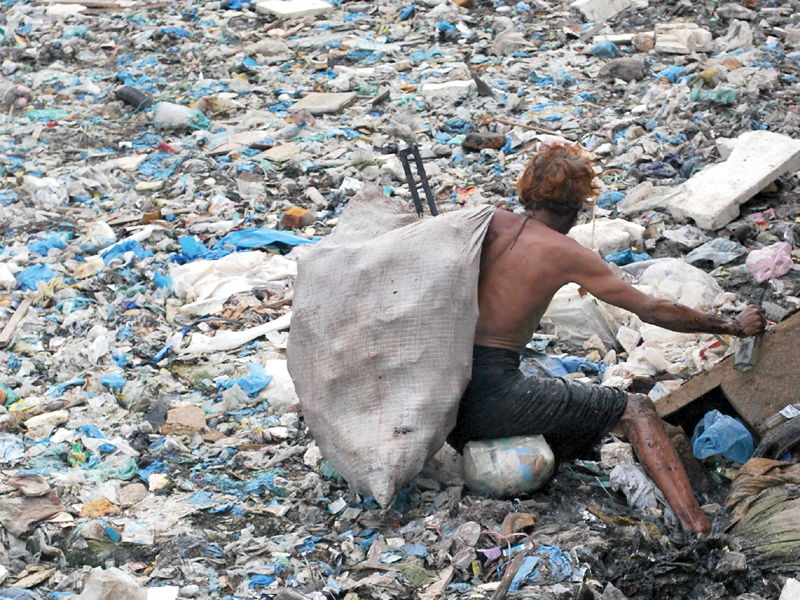
With an estimated population of over 20 million, Karachi city generates around 10,000 tonnes of municipal solid waste per day. This was shared on the third day of the South Asian Cities Conference 2014 held here on Sunday.
Sir Syed University of Engineering and Technology’s Dr Mansoor Imam said the Karachi Municipal Corporation is only responsible for dumping municipal waste and there is no way to dispose of hazardous waste.
According to Iman, landfills will be exhausted by 2016. “To tackle the issue KMC had established a 500 acre semi-aerobic landfill site in the northwest part of the city for the scientific disposal of waste,” he added.
While presenting an overview of the integrated solid waste management system in Karachi, Muhammad Khalid, a consultant with government departments, said of the 10,000 tonnes of generated solid waste only 5,000 tonnes make it to the two landfills at Gond Pass and Deh Jam Chakro. “The rest of it ends up being dumped in open plots, burnt on site or dumped in storm drains that lead to the Malir and Lyari rivers,” he added.

Khalid identified solutions including an improved collection system, mechanical sweeping, sanitary landfills and converting the waste to energy.
Save the sea and sushi
Dr Nuzhat Khan of the National Institute of Oceanography stressed the need for proper management of waste for the protection of the country’s marine lands and wildlife. “Rapid urbanisation means more solid waste which gets dumped into water channels that lead to the sea. It damages the coastal line and is consumed by creatures inhabiting the waters,” said Dr Khan.
“Your waste can end up in your plate.”
Green energy
The session also featured an introduction to the Karachi Organic Energy Limited (KOEL), a joint venture between Aman Foundation and the KESC, established to generate electricity for the city from manure.
KOEL CEO Muhammad Ali Saya, while presenting a study of Cattle Colony in Landhi, said a total of 3,500 tonnes of manure is generated daily in the 1,000 dairy farms located in the area. “We intend to gather the manure and degrade it to methane in order to burn it in gas engines to generate electricity,” said Saya.
The CEO added the project would generate around 18 megawatts of electricity, and could become the largest project of this nature in the region. “KOEL is a zero-waste project and is a step towards making Karachi a green city,” he concluded.
In response to a question, panellist Khalid Siddique felt that another way to maintain the flow of solid waste to the designated landfills was by segregating waste at home. “We could all divide our waste at home as organic and inorganic, this way when the waste it collected it can be transported to the proper site, a compost or a landfill,” he said.
Published in The Express Tribune, January 13th, 2014.
1731933289-0/BeFunky-collage-(68)1731933289-0-405x300.webp)
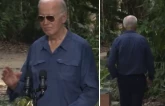

1731931652-0/BeFunky-collage-(67)1731931652-0-165x106.webp)

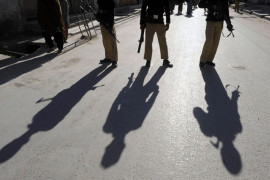
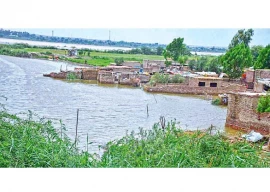
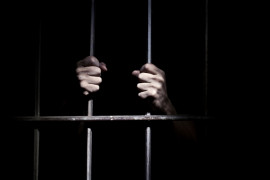
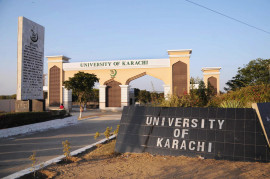
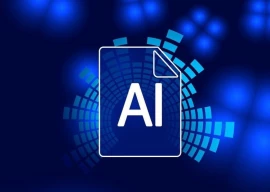
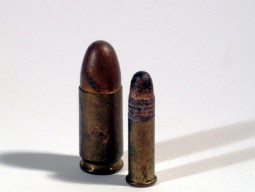






COMMENTS (1)
Comments are moderated and generally will be posted if they are on-topic and not abusive.
For more information, please see our Comments FAQ